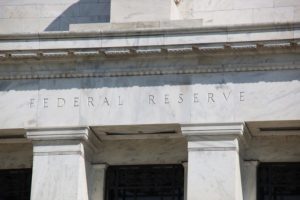Where Does Occupy Go From Here?
The program to oust the Occupy Wall Street movement from its sites of occupation is now under way. The Occupied, who own the police, have grown tired of the Occupation.
The program to oust the Occupy Wall Street movement from its sites of occupation is now under way. The Occupied, who own the police, have grown tired of the Occupation.
The advantage they possess is that the Occupiers have not provided a coherent statement of what they want. Their other advantage is that Americans are not revolutionaries — after all, isn’t the American system the best in the world?
The Occupiers dismiss this demand for a program as contrary to the spirit of the Occupation. There is not and cannot be an agreed upon program because that is not the nature of the movement, which is anarchistic in quality (yet having nothing to do with anarchism itself).
It is against “the system.” The system is how the world economy works today, and it is responsible for creating the international crisis of which Occupation has been a response: original, spontaneous, seductive, but incoherent and directionless.
How, after all, can “the system” be changed? Well, first, justice could be done. This is what people want: justice.
We could indict and prosecute the bankers who were involved in the conception, organization and conduct of the vast organized swindle that foisted home mortgages on poor people who wanted homes, or the cash from refinanced mortgages, and were sufficiently unsophisticated to be persuaded that the international, and specifically American, real estate price balloon would automatically absorb the mortgage debt.
We could indict and prosecute the brokers and financial operators who conceived and organized the “securitizing” of those mortgages so as to make of them an undifferentiated mass of anonymous debt that could be chopped into individual securities and sold to criminal or credulous bankers, who would sell them on to ignorant or credulous institutional and individual investors. That, however, is so vast a project, and the American public so passive, as to be probably unfeasible.
We could remove rating agencies from private ownership. As private enterprises, they currently play a sinister national and international role (against which the EU in Brussels is now searching to develop legal remedies). Their self-generated, unsupervised and unregulated, client-subsidized, and market-moving rating pronouncements (or “mistakes”) have undermined securities and the weaker European governments in a manner readily exploited by market speculators.
The feasible but distant possible reform is to elect a new American administration and Congress that would reform the Wall Street system by separating the securities industry from banking, while nationalizing major banks and placing local banks under public ownership or supervision and control. They would re-regulate corporations (and legally nullify their legal “personalization”), as was the case in the past as the result of the Progressive Era reforms and the New Deal. They would restore independence and legal protection to unions.
While theoretically feasible, this too is unlikely. As I have argued in the past, it is unlikely ever to happen so long as the electoral system is not changed so as to regulate electoral campaigning in a way that provides all qualified candidates with equitable access to national and local media, removing the money barrier to public office that now exists. One salutary result of this would be to destroy the Washington lobbying industry as we now know it.
Can public opinion, awakened by the Occupation movement, produce such results? The cynical, or perhaps the realistic, will say no. In that case, not only is the long-term American outlook depressing in political as well as economic respects, but the longer-range prospect is of continuing unemployment and family poverty, American economic deterioration, and American political decline in world affairs as well.
A useful article just published by the Financial Times commentator Martin Wolf observes that it was not the hyperinflation Germany experienced after the First World War. It was the brutal and seemingly interminable Depression and unemployment that followed the crash that created the conditions in which German democracy collapsed. Its successor, National Socialism, ended the Depression, and put the German economy back on its feet. In case anyone has forgotten.
Visit William Pfaff’s website for more on his latest book, “The Irony of Manifest Destiny: The Tragedy of America’s Foreign Policy” (Walker & Co., $25), at www.williampfaff.com.
© 2011 Tribune Media Services, Inc.
Your support matters…Independent journalism is under threat and overshadowed by heavily funded mainstream media.
You can help level the playing field. Become a member.
Your tax-deductible contribution keeps us digging beneath the headlines to give you thought-provoking, investigative reporting and analysis that unearths what's really happening- without compromise.
Give today to support our courageous, independent journalists.






You need to be a supporter to comment.
There are currently no responses to this article.
Be the first to respond.